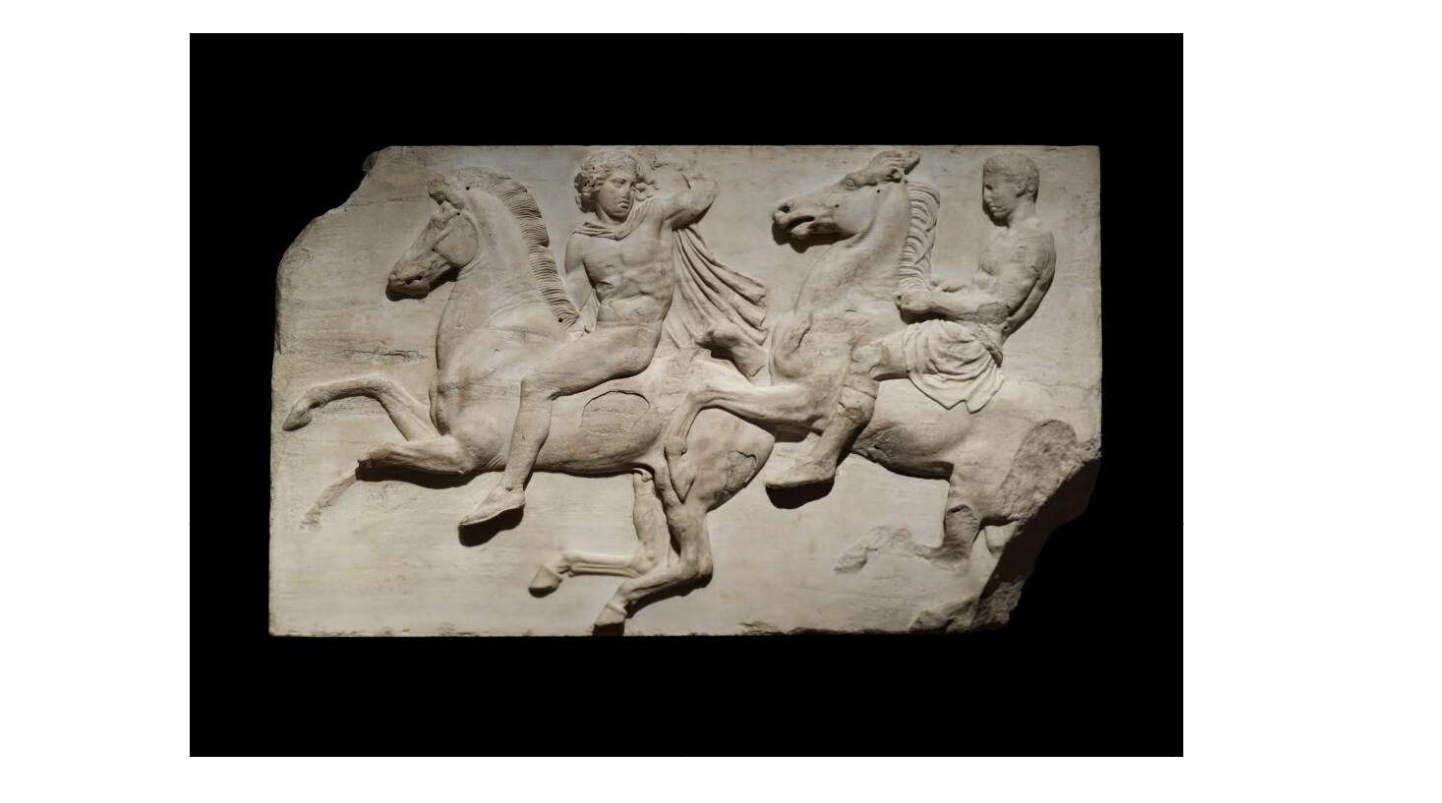The Evolution of Equestrian Sports in Southern California: A Glimpse into History
Equestrian sports boast a rich and diverse heritage in Southern California, a region celebrated for its sunny climate and love for the outdoors. Particularly in the Los Angeles area, these sports have seen a significant evolution, transitioning from early horse racing days to a contemporary scene that encompasses dressage, show jumping, and eventing. The equestrian legacy here is as dynamic as it is enduring.
Series - The Parthenon Sculptures © The Trustees of the British Museum
Early Beginnings
The first instance of Equestrian sport can be traced to 400 BC in the procession of the Panathenaic festival of Ancient Greece. The inception of equestrian sports in Los Angeles dates back to the late 19th and early 20th centuries, marking the beginning of horse racing in the region. Iconic venues like Santa Anita Park, which opened its gates in 1934, have become landmarks. Beyond racing, the area embraced polo and fox hunting, tailoring these traditions to fit its unique landscapes.
The Golden Age of Hollywood
Hollywood's golden era had a profound impact on local equestrianism, with celebrities and moguls integrating horseback riding into their leisure activities and on-screen productions. This period witnessed the emergence of equestrian estates and stables, especially in Burbank and the San Fernando Valley, enhancing the visibility and stature of equestrian sports.
The Evolution of Equestrian Venues
Del Mar Fairgrounds and Racetrack
Del Mar Fairgrounds and Racetrack, 1930s
Established in 1937 and renowned for its motto "Where the Surf Meets the Turf," the Del Mar Fairgrounds and Racetrack has been a cornerstone of the region's equestrian culture. Founded by Bing Crosby, among others, it not only champions thoroughbred racing but also hosts esteemed equestrian events, contributing richly to the local heritage. However, it's important to acknowledge the controversies and challenges that have shadowed horseracing, including concerns over animal welfare and safety. These have prompted ongoing discussions and reforms within the industry to improve conditions for the horses involved.
Will Rogers State Historic Park
This Pacific Palisades park, once the estate of cowboy and actor Will Rogers, now serves as a living testament to Southern California's polo legacy. The site's active polo field, a favorite pastime of Rogers, continues to host matches, preserving the sport's historical significance in the area.
Industry Hills Expo Center
In the City of Industry, this expo center plays a pivotal role in the equestrian community by hosting diverse events, including the Industry Hills Charity Horse Show. Its facilities support a range of equestrian disciplines, highlighting the area's commitment to nurturing the sport.
Post-War Developments
The post-World War II era marked a shift towards recreational riding and competitive sports such as dressage and show jumping. This democratization allowed for a broader public engagement, with riding schools and public stables facilitating access to horseback riding as a hobby.
The Los Angeles Equestrian Center: A Modern Epicenter
The establishment of the Los Angeles Equestrian Center in Burbank signaled a new era in the region's equestrian narrative. Located in Griffith Park, it has become a hub for enthusiasts, offering services that range from boarding to hosting competitions, reflecting the sport's growing popularity and professionalization.
Today's Equestrian Landscape
Southern California remains a vibrant center for equestrian sports, with venues like the Los Angeles Equestrian Center and others hosting an array of events that cater to all facets of the equestrian community. This diversity, from casual riders to Olympic athletes, underscores a thriving culture that is both inclusive and expansive.
Southern California's equestrian evolution mirrors broader societal, technological, and cultural shifts, yet the passion for horseback riding and competition remains undiminished. The region's commitment to this legacy, supported by venues old and new, promises a bright future for equestrian sports.
Article by: Erica Greenberg, Los Angeles Equestrian Center Marketing Manager


